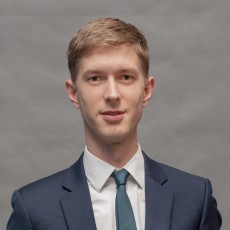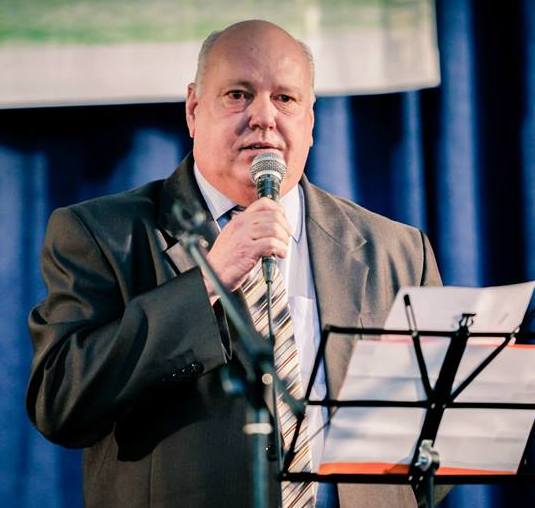October 29, 2014
The American University of Central Asia promises a world-class, liberal arts, and multi-faceted education. The international student body, partnership with Bard College, and a bevy of extracurricular offerings all combine to form our unique and inclusive environment. All of our faculty contributes to the open classroom atmosphere, which students like Begimai Amantaeva praise for “allowing us to express our own ideas…we are free to choose, we don’t just have to follow.”
But one of the strengths of AUCA is our emphasis on international faculty. As explained by Assistant Professor of Business Administration, Jean-Baptiste Jault, “students here have a very good advantage, they can have local and international professors. This gives them different points of view, which is important…there is no one point of view or truth.” And although he was referring to his own teachings in business, the same can apply to every field of study. We talked to teachers Jean-Baptiste Jault and Jesus Guillermo Bravo, Assistant Professor of Spanish about their backgrounds and their work at AUCA.


|
Jean-Baptiste Jault |
Jesus Guillermo Bravo |
|
1. Can you introduce yourself?
So my name is Jean Baptiste from Paris, France. I started working at AUCA two years ago. I started as part-time, and last year they offered me a full-time position. So this is my second academic year as a full-time teacher in the Business Department. I teach classes related to finance: Introduction, Banking, Management, etc.
2. So how did you end up in Bishkek?
Ah so, that’s the main question. Basically, four years ago I knew nothing about Kyrgyzstan or Central Asia, well maybe Kazakhstan a little bit. I studied in South Korea, in a school called the Korean Development Institute. AUCA is somehow related to the school. The school was a bit special; they give a Master in Public Policy for government officials of developing countries. So when you go there, you meet all of these people from these countries and there I was very close to people from Central Asia. I don’t know why, but it is how it was. And I had very good friends from Kyrgyzstan, Kazakhstan and Uzbekistan. Our relationships were very good, but then I went back to France to work in a bank. After two years, I wanted to work in micro-credit/finance; finally it did not work but I came here to work in that field.
3. Why were you studying at the Korean Development School?
My business school in Paris for my Masters is also related to the Institute, and so you see the world is small.
4. So how does AUCA compare to past schools you have attended?
Well to compare the French and American system is a big difference. Here at AUCA, with the liberal arts system, students and professors can collaborate together. They can much more easily approach each other. In France, you don’t go to the professor; after the lecture you leave and see him next week. The approach here is good, its something I wish I had in Paris. The proximity you have here with the professors is something useful. I have the feeling I can help.
5. In business, how is it helpful for students to have different perspectives from teachers?
Well the students here have a very good advantage, they can have local and international professors. This gives them different points of view, which is important. In business there is no one point of view or truth, it is not like that. There are always different points of view. And because the purpose of this university is to create future leaders, it is good as a leader to be aware that the world now is global. Me, in France, we had very professional teachers with enormous job experience. But, we didn’t have so many international professors so it was a big disadvantage. Maybe 50 years it would be ok, but today, not having international faculty is a big disadvantage.
6. Is there anything else you’d like to say?
When I was young and working in France, you are not considered. The good advantage of the American system and this university is that if you work well and still are young, they will trust you. We like to feel confidence; it is hard to motivate ourselves. That is what I really like here. Well what is great about this university is they are always active, in conferences, classrooms, and other things. It gives them a good idea about what is life after university. But after this, the problem is outside of AUCA, they face the system here, which is somehow close to the French system in which they must wait to be
|
1. Can you introduce yourself?
My name is Jesus Guillermo Bravo. I work at the American University of Central Asia. I actually came from Cuba. It is my home country, so my native language is Spanish; and so I teach Spanish here at AUCA.
2. Where did you work before AUCA?
I finished studying in 1984; actually I came here in 1979 during the Soviet times. Studied in Frunze, at that time Bishkek was called Frunze, right?I studied at Polytechnic Institute and graduated in 1984. My specialization was as an engineer, and mechanic. Then I went back to Cuba, where I worked for 6 years as an engineer. I think in 1989 I came here to Kyrgyzstan. After, I worked as an engineer in construction. In 1999 there was a vacancy for a Spanish instructor, and as I graduated from Cuba from an interpreter’s school, I began working as a Spanish instructor at the State University. I then had a chance to go to Madrid as a teacher to teach Spanish as a foreign language.
3. I heard you participated in a concert here?
Yes. We had different events to educate people in the Spanish language. I sang songs in Spanish and even in Russian. There is a Spanish Club at AUCA, through the Club we had different events and activities.
4. Why is Spanish important for a student in Kyrgyzstan?
During the Soviet times, no one learned Spanish. After Kyrgyzstan became independent, there was a boom of Spanish language. Because people started moving to other countries, many students received scholarships to study in America, Europe, and they began feeling that the Spanish language was one of the most important languages worldwide. And besides that, there were people who migrated to Argentina for example, so maybe it was a requirement for them to learn Spanish. And all universities that have International Relations faculty besides English, French, and German, also have Spanish.
5. So what is it you enjoy about teaching Spanish here at AUCA?
I love teaching language at AUCA because I think that through teaching language, I learn about my students’ culture and also are introduced to them. It is wonderful and creates good communication. |